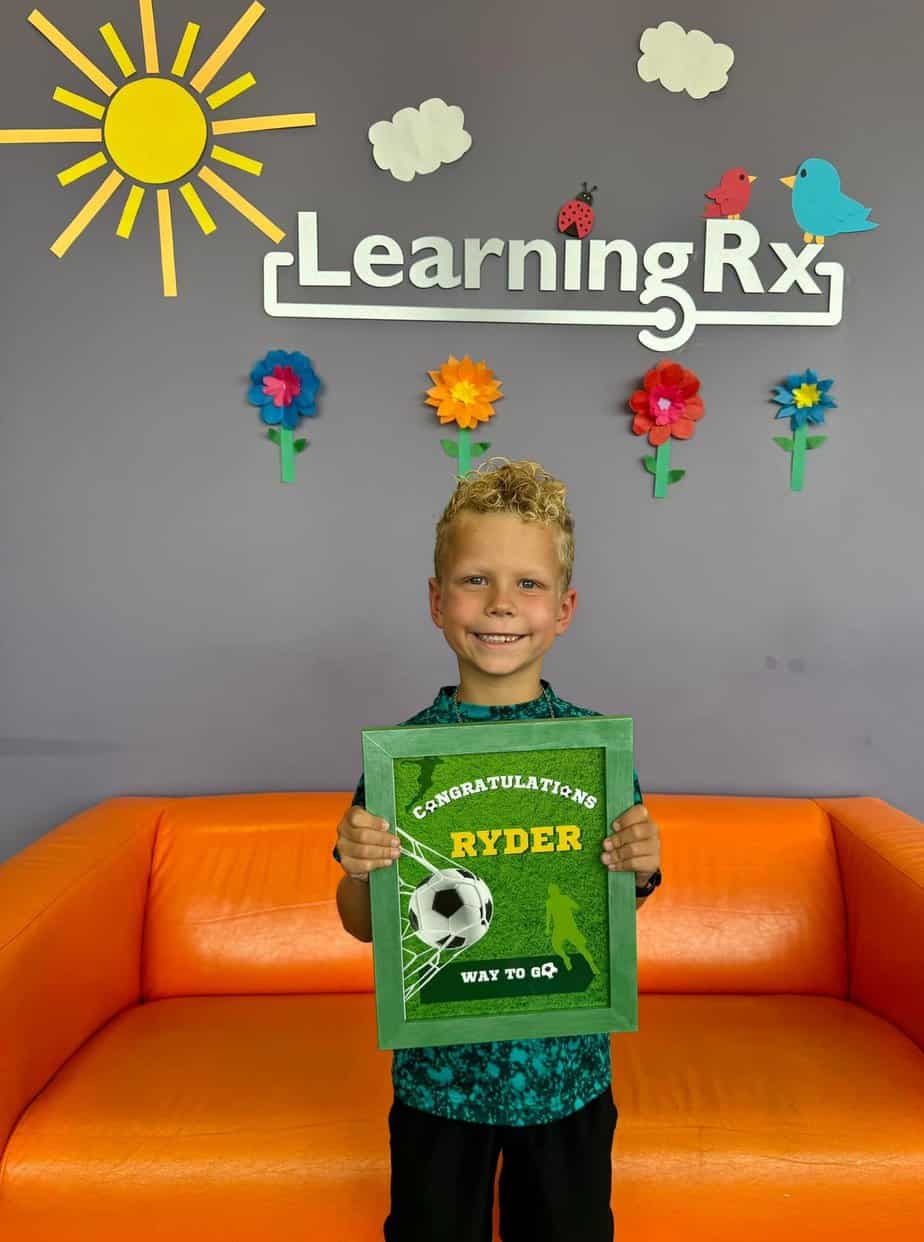From Reading Frustration to Reading For Fun
Ryder recently completed his LearningRx training and saw big jumps in his reading skills. Ryder went from reading frustration to reading for fun.
His mom wrote, “We LOVE Learning Rx!! Our oldest child attended a couple years ago when he was in first grade, and we saw great gains with his reading and memory skills. He is more confident with his reading and is actually enjoying reading now! Now, our other child is enrolled and is in first grade. He struggles with reading (and his confidence) and will get frustrated when reading. Since starting at LearningRx a couple months ago, he has gone up two reading levels at school and we are seeing his confidence increase! He loves being able to read words out in the world. His frustration with reading has decreased, and he is very interested in books. Thank you LearningRx- Savage!!!”
If you have a child struggling to read, don’t wait to get help. If kids struggle at a young age, this can be a precursor to greater struggles as they get older. For some kids in can just click, but when there are consistent reading struggles, it is wise to seek reading help.
A great way to find out if your child’s reading difficulties are likely to continue is to schedule an initial cognitive skills assessment at LearningRx in Savage. This 90-minute assessment will identify the root cause of the reading struggle and provide insights as to whether your child will likely pick up reading through standard means or need training to address the root cause.
Persistent reading difficulties are usually the result of cognitive skills weaknesses that are not addressed through standard teaching or reading tutoring. The most critical cognitive skill for reading is auditory processing. Auditory processing enables a child to segment and discern the sounds to decode and blend. When this skill is weak, blending is very difficult. If this is accompanied by memory weaknesses – long-term or short-term memory, the reading struggle is compounded as the majority of the words in our language are non-phonetic. For example, low memory negatively impacts the ability to recognize sight words as well as all the strange exceptions and non-phonetic words like “laugh”. If these skills are causing the reading struggle, it is wise to get help early as these deficits can only be improved through cognitive skills training – not teaching or tutoring.
If you want to see your child move from reading frustration to reading for fun, call LearningRx in Savage today. We can help your child thrive in reading in the new school year! Mention this article and receive $100 off the initial assessment (standard price of $199).







